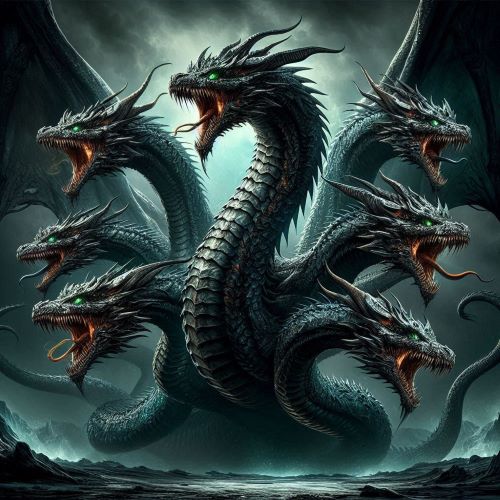Southern European Animals
Southern European animals have played a central role in mythology, weaving through the folklore and legends of countries such as Spain, Italy, Greece, and Portugal. These creatures, both real and fantastical, symbolize power, wisdom, and protection, often embodying the spirit of the natural world. Mythical beings like wolves, eagles, and serpents appear frequently in Southern European tales, often interacting with gods, heroes, and mortals alike. These animals not only reflect the landscapes and ecosystems of the region but also express the deeper cultural values and beliefs of Southern European societies.
The influence of Southern European animals in mythology often blends reality with the supernatural. For instance, the wolf holds a special place in Roman mythology, where the she-wolf nurtured Romulus and Remus, the founders of Rome. In Greek myth, the eagle was seen as the symbol of Zeus, representing strength and divine authority. This interplay between real animals and their mythical counterparts helped Southern Europeans develop a sense of connection with nature, while also infusing their stories with mysticism and wonder. Across the region, animals have long been viewed as messengers of the gods or as omens, carrying both good and bad fortune depending on the context of their appearances.
Mythical creatures inspired by Southern European animals also reflect the region’s diverse geography, from the coastal cliffs of the Mediterranean to the forested mountains of the Iberian Peninsula. Sea serpents, believed to roam the Mediterranean waters, were often depicted as fearsome monsters, embodying the dangers of the sea. In contrast, land-based creatures like the Stymphalian birds from Greek mythology are connected to the rugged and wild landscapes, acting as obstacles for heroes to overcome. These stories often carry moral lessons or symbolize human struggles, blending the characteristics of animals with those of humanity.
Southern European animals in mythology are not confined to antiquity but continue to influence modern culture. Many contemporary works of fiction, cinema, and art draw inspiration from these ancient myths, keeping the legacy of these creatures alive. Festivals and rituals celebrating animals, like Spain’s running of the bulls or Italy’s depictions of the Lupa Capitolina, demonstrate how ingrained these creatures are in the cultural identity of Southern Europe. Through storytelling and symbolic representation, these animals persist in the cultural fabric, linking the past with the present.
Ultimately, the mythical Southern European animals reflect the complex relationship between humans and the natural world. Whether as protectors, adversaries, or symbols of divinity, these creatures have been woven into the spiritual and cultural narrative of Southern Europe. They serve as reminders of the power of nature, the mysteries of the unknown, and humanity’s timeless quest to find meaning in the world. Through these myths, the animals of Southern Europe are immortalized, continuing to captivate and inspire people across generations.
Southern European animals have played a central role in mythology, weaving through the folklore and legends of countries such as Spain, Italy, Greece, and Portugal. These creatures, both real and fantastical, symbolize power, wisdom, and protection, often embodying the spirit of the natural world. Mythical beings like wolves, eagles, and serpents appear frequently in Southern European tales, often interacting with gods, heroes, and mortals alike. These animals not only reflect the landscapes and ecosystems of the region but also express the deeper cultural values and beliefs of Southern European societies.
The influence of Southern European animals in mythology often blends reality with the supernatural. For instance, the wolf holds a special place in Roman mythology, where the she-wolf nurtured Romulus and Remus, the founders of Rome. In Greek myth, the eagle was seen as the symbol of Zeus, representing strength and divine authority. This interplay between real animals and their mythical counterparts helped Southern Europeans develop a sense of connection with nature, while also infusing their stories with mysticism and wonder. Across the region, animals have long been viewed as messengers of the gods or as omens, carrying both good and bad fortune depending on the context of their appearances.
Mythical creatures inspired by Southern European animals also reflect the region’s diverse geography, from the coastal cliffs of the Mediterranean to the forested mountains of the Iberian Peninsula. Sea serpents, believed to roam the Mediterranean waters, were often depicted as fearsome monsters, embodying the dangers of the sea. In contrast, land-based creatures like the Stymphalian birds from Greek mythology are connected to the rugged and wild landscapes, acting as obstacles for heroes to overcome. These stories often carry moral lessons or symbolize human struggles, blending the characteristics of animals with those of humanity.
Southern European animals in mythology are not confined to antiquity but continue to influence modern culture. Many contemporary works of fiction, cinema, and art draw inspiration from these ancient myths, keeping the legacy of these creatures alive. Festivals and rituals celebrating animals, like Spain’s running of the bulls or Italy’s depictions of the Lupa Capitolina, demonstrate how ingrained these creatures are in the cultural identity of Southern Europe. Through storytelling and symbolic representation, these animals persist in the cultural fabric, linking the past with the present.
Ultimately, the mythical Southern European animals reflect the complex relationship between humans and the natural world. Whether as protectors, adversaries, or symbols of divinity, these creatures have been woven into the spiritual and cultural narrative of Southern Europe. They serve as reminders of the power of nature, the mysteries of the unknown, and humanity’s timeless quest to find meaning in the world. Through these myths, the animals of Southern Europe are immortalized, continuing to captivate and inspire people across generations.


